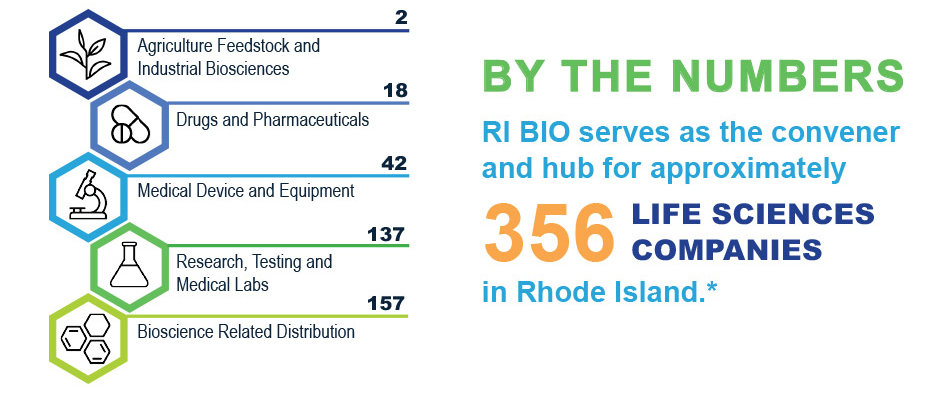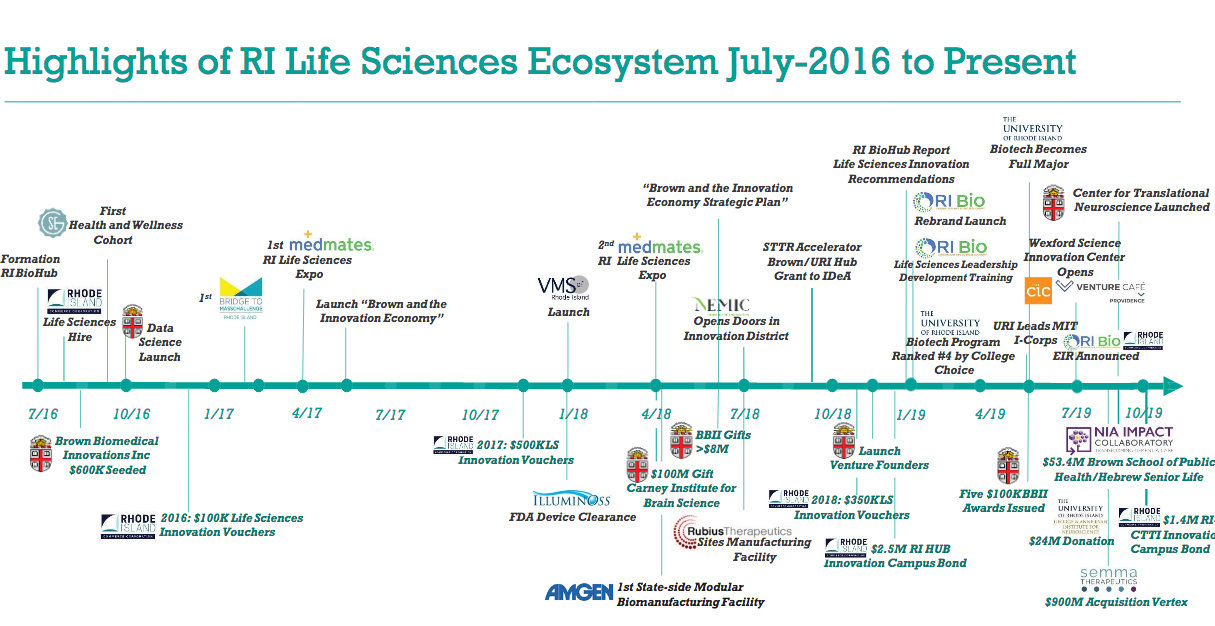Technical skills alone are not enough
RI Bio has launched an advanced leadership certificate program for its member organizations to address a significant need in common: the ability to grow and develop leaders
NEWPORT – On Thursday, Nov. 14, in a second floor classroom at Innovate Newport, some 20 participants in the RI Bio advanced leadership certificate program were busily engaged in discussing business strategies with Mari Anne Snow from Bryant University, part of a concerted effort to help firms within life sciences ecosystem build a sustainable leadership pipeline to grow emerging leaders at every level.
The classroom participants included employees from Amgen, EpiVax, the Rhode Island Quality Institute, Ximedica, the St. Elizabeth Community, Bay Computer Associates and Rubius Therapeutics.
The design of the course grew out of a need identified through a one-on-one interview process with firms in the life sciences sector. “The startup, growth and mature organizations we interviewed expressed their mutual need to attract, retain and promote talent within their organizations,” according to materials prepared by RI Bio.
The classes are a collaborative effort involving RI Bio, Leadership Rhode Island, Bryant University, and the R.I. Department of Labor and Training.
The monthly course, with six modules, was focused on “accountability” at the Nov. 14 session. First, however, each participant reported on their efforts following the previous session, which focused on negotiation skills.
Snow kept the pace of the classroom discussion flowing, turning the focus to how best to differentiate between strategy and tactics: a business strategy provided guidelines and set directions, but it did not dictate the actions a business will take to achieve their objectives.
Each of the participants shared potential growth strategies at the firm where they worked, and then potential tactics at the operational level to accomplish the strategy.
The next exciting chapter
“Rhode Island has been making great progress in growing our life sciences economy,” said Carol Malysz, the executive director of RI Bio. “RI Bio’s aim is to help Rhode Island life sciences companies prepare their next generation of leaders so that they can continue to advance the success of their firms while having a positive impact on the state’s economy.”
“You can see from this training,” Malysz continued, “how important it is to stitch together the whole ecosystem, because things don’t happen without affecting other parts of the whole.”
From her perspective, she said, “Momentum is really building to create an exciting new chapter with life sciences in Rhode Island.”
At the request of Bruce Katz, a co-founder of the firm, New Localism, who had been hired by CommerceRI to prepare a new overview of the future of the innovation economy in Rhode Island, Malysz had prepared a chart showing the milestones and progress in the Rhode Island Life Sciences sector during the last three years. [See second image above.]
When asked about where the convergence would occur between top-down and bottom-up innovation initiatives in Rhode Island, Malysz said that it was a good question, one that she would need to think about before responding.
What was most important, Malysz emphasized about the work of RI Bio, was “the need for everything to get knitted together – the talent, the workforce, and the companies that have been growing.”







